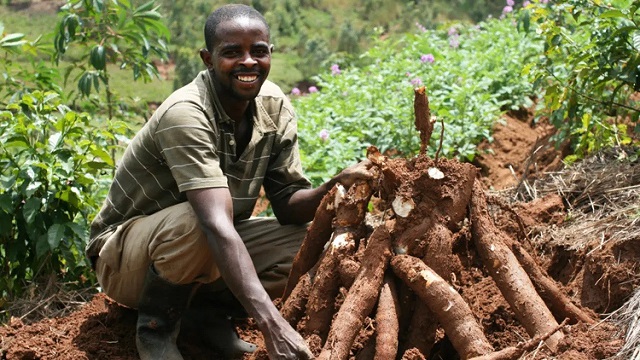
Dubai, UAE | THE INDEPENDENT | Leaders of more than 130 nations have endorsed the UAE Declaration on Sustainable Agriculture, Resilient Food Systems, and Climate Action.
In September 2021, UN Secretary-General, António Guterres convened the UN Food Systems Summit following evidence that food systems are one of the main reasons the world is failing to stay within the planet’s ecological boundaries.
It is the first time that governments have committed to bringing action on food systems into their responses to the climate and nature crises. Among other things, they are committing to helping food producers adapt to climate change, and to shifting away from practices that result in high emissions of greenhouse gases, while conserving, protecting, and restoring nature.
They pledged to integrate such actions in their National Adaption Plans under the UN Framework Convention on Climate Change, their Nationally Determined Contributions under the Paris Agreement, and their National Biodiversity Strategies and Action Plans under the UN Convention on Biological Diversity.
They commit to doing this before COP30 of the UN Framework Convention on Climate Change in 2025, and will review progress next year at COP29. On 10 December, the COP28 Presidency and partners will host an event focused on implementing the Declaration.
It will include the launch of a “climate policy toolkit for food” aimed at accelerating implementation. While the latest action will emerge as one of the positive outcomes from the ongoing UN Climate Conference in Dubai some of the delegates are demanding for more action
Lim Li Ching, co-chair of theInternational Panel of Experts on Sustainable Food Systems(IPES-Food) ina statement said while that is an essential first step, the language remains very vague. “And specific actions and measurable targets are conspicuously missing – including shifting to healthy sustainable diets, phasing out fossil fuels, and reducing over consumption of industrially produced meat.”
The Executive Director of the Food and Land Use Coalition, Morgan Gillespy said the declaration is a much-needed development but noted that it should observed that from previous COPs the signing a declaration is far from enough.
“Countries must rapidly shift to implementation from the moment the ink on the page dries.” he said.
Tom Mitchell, Executive Director of the International Institute for Environment and Development described the declaration as staggering because it has not included obligation to include agriculture sector in emissions reductions plans for so long.
“Government subsidies have long supported the polluting effects of large-scale agriculture, acting as a hidden brake on climate action. These payments should be redirected in a way that means people and nature can thrive,” said Mitchell.
Meanwhile, Diego Martinez Schütt, Food Systems Advisor at CAFOD said the Declaration is a step in the right direction because it addresses our broken global food system by targeting support for indigenous peoples and small-scale farmers, and in recognizing the need for local solutions.
“This Declaration will only work if it encourages governments to focus on strengthening local food systems through solutions that have already proven effective, such as agroecology.”
In 2021, a report by the United Nations’ Environment Programme (UNEP) found that over decades, as populations have grown, more people are consuming – and wasting more food – than ever before. Unsustainable food production and consumption patterns are a common thread, running through many of the greatest challenges facing humanity today.
It further found that between 2000 and 2010, large-scale commercial agriculture accounted for 40 per cent of tropical deforestation; and local subsistence agriculture was not far behind, accounting for another 33 per cent. But human food systems depend on biodiversity to function, and conventional food systems reduce biodiversity – effectively destroying their own foundation.
***
URN
 The Independent Uganda: You get the Truth we Pay the Price
The Independent Uganda: You get the Truth we Pay the Price





